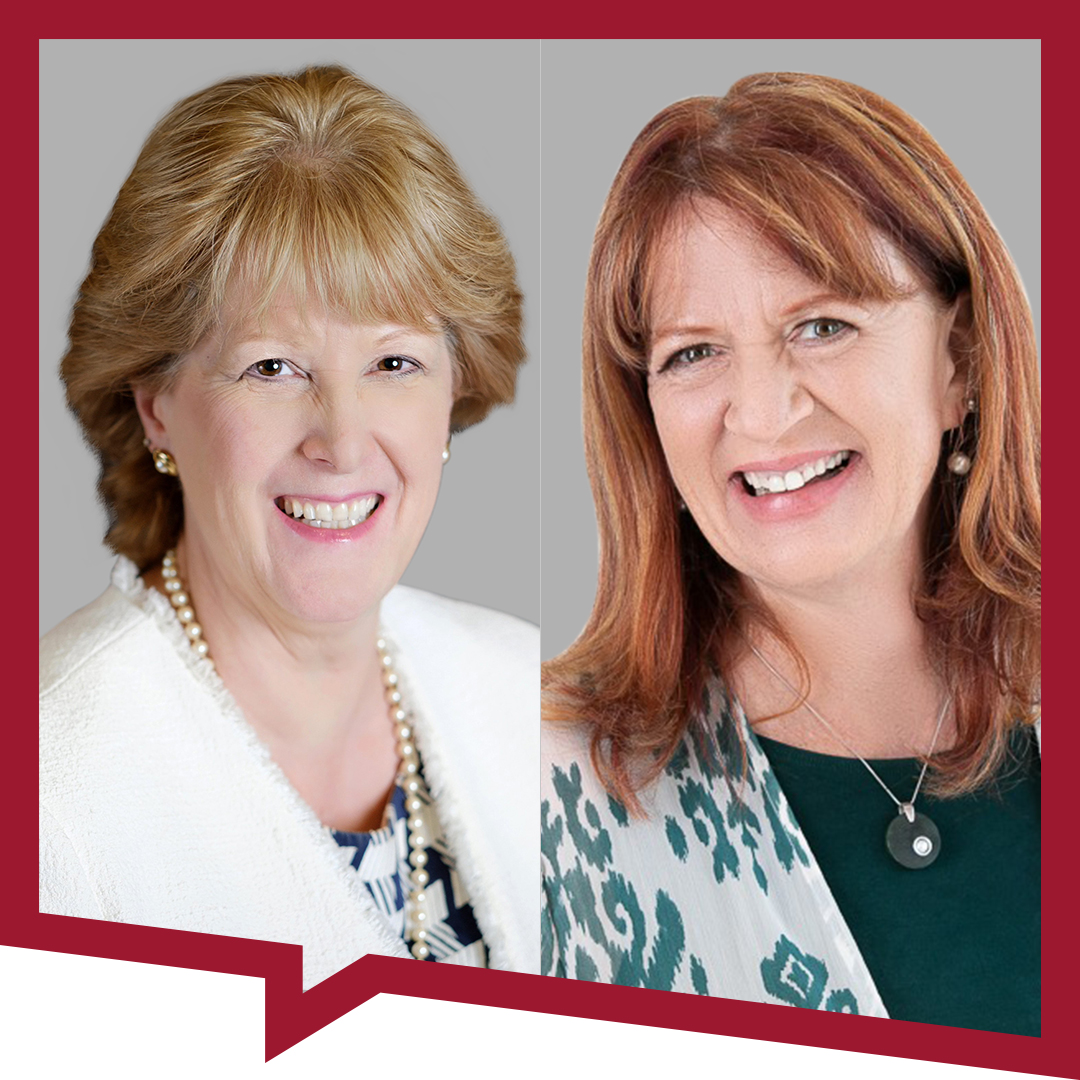
Çocukların beslenme süreçlerine destek olmak, onların sağlıklı büyüme ve gelişmeleri için temel bir adımdır. Bu yolda, özel ihtiyaçları olan çocuklara yönelik etkili ve anlayışlı yaklaşımlar geliştirmek üzere tasarlanmış "İleri Düzey SOS Beslenme Terapisi: Reflüden Otizme Gelişimsel Sorunları Olan Bebek ve Çocuklarda Beslenme" Eğitimi sizleri bekliyor.
Eğitim Kimler İçin Uygundur?
SOS Beslenme Terapisi Sertifika Programını tamamlamış:
- Beslenme ve yeme zorlukları yaşayan çocuklarla çalışan sağlık profesyonelleri,
- Dil ve Konuşma Terapistleri
- Fizyoterapistler
- Ergoterapistler
- Çocuk Gelişimciler
Eğitimin Sundukları
- Uzman eğitmenlerden alınan derinlemesine bilgiler,
- Pratik uygulama ve stratejiler,
- Katılım Sertifikası ve Sürekli Eğitim Saatleri,
- Eğitim sonrası destek ve danışmanlık hizmetleri.
Eğitim Formatı
Eğitimler, yüz yüze formatındadır.
"Çocukların beslenme yolculuğunda güvenli ve etkili bir rehber olun."
1. Atölye: Otizmli Çocuğun Beslenmesi
Bu İleri Düzey Eğitim, Otizm Spektrum Bozukluğu Olan Çocukların diğer çocuklardan daha fazla yemek ve beslenme konusunda neden zorlandığını ayrıntılı olarak ele almaktadır. Araştırmalar tarafından belirlenen Otizm Spektrum Bozukluğu Olan Çocuklara özgü zorluklar, SOS Beslenme Terapisi Sertifika Programında tartışılan İnsan Fonksiyonları (buzdağının 7 alanı) her biri içinde sunulmaktadır. Ardından, Otizm Spektrum Bozukluğu Olan Tüm Çocuklar için önerilen Genel Tedavi Stratejileri tartışılacaktır. Kursun son bölümü, Otizm Spektrum Bozukluğunun şiddetli ucundaki çocuk için SOS Beslenme Terapisi Sertifika Programının nasıl "aşağı doğru" adapte edileceğini açıklamaya ayrılmıştır.
Eğitmen: Dr. Kay Toomey: Pediatrik Psikolog, Toomey & Associates, Inc. Başkanı ve SOS Beslenme Terapisi Programı Geliştiricisi
Ön Koşul: Katılımcının SOS Beslenme Terapisi Sertifika Programını tamamlamış olması gerekmektedir.
Özel Popülasyon: Otizm Spektrum Bozukluğu Olan Çocuklar
Beslenme Bozuklukları: Gıda Alerjileri/Duyarlılıklar/Toleranslar
Özel İlgi Konuları: Çocukların gıda yelpazesini ve miktarını genişletme, Gıdayı terapotik bir araç olarak kullanma
Hedefler:
- Otizm Spektrum Bozukluğu olan çocukların özellikle onlar için beslenmeyi zorlaştıran beş sorunu en azından listeleyin;
- SOS Beslenme Terapisinin Otizm Spektrum Bozukluğu Olan Çocuklar için Adaptasyonunun en azından iki bileşenini tanımlayın;
- Otizm Spektrum Bozukluğu Olan Çocuklar için en azından üç hiyerarşi stratejisini listeleyin.
Akış:
- Tanıtım ve Yaygınlık
- Otizm Spektrum Bozukluğu Olan Çocuklarda Beslenme Konusunda Benzersiz Zorluklar
- Genel Tedavi Stratejisi Adaptasyonları - Aile Yemekleri ve Gıda Takıntıları
- Düşünülmesi Gereken Diğer Terapiler
- SOS Beslenme Yaklaşımı Yapısının ve Gıda Hiyerarşilerinin Adaptasyonu
- SOS Terapisi Öğün Rutinini Uyarlamak
- SOS Beslenme Yaklaşımı Yeme Hiyerarşi Oyun Stratejilerini Uyarlamak
- Malzemelerin Gözden Geçirilmesi
Süre: 3 Saat 52 Dakika
2. Atölye: 6-16 Ay Arası Çocuğun Beslenmesi
Bu İleri Düzey Eğitim, katı gıdalara 5-6 ay civarında başlayan genç bebek ve yürümeye başlayan çocuklar için Temel SOS Beslenme Yaklaşımı Programının "aşağı doğru" bir adaptasyonunu sunar (bebek mamaları, parmak gıdalar, masa gıdaları), biberon/memeden kesme sürecinden başlayarak yaklaşık 16-18 ayına kadar tamamen masa gıdaları diyetine geçiş yapar. Atölye bu zaman dilimini 5 zaman dilimine ayırır ve her aşamada bir çocuğa nasıl beslenmesi gerektiği konusunda öneriler sunar. Atölye, her yaşta beslenmede beslenme programları, beslenme teknikleri, pozisyon alma, sunulan yiyecek türleri ve beslenmedeki gelişimsel geçişlerin rolü etrafında düzenlenmiştir.
Eğitmen: Dr. Erin Ross: Uluslararası alanda tanınan Bebek Beslenme Uzmanı, Konuşma Patologu ve NICU'da Hassas Bebeklerde Oral Beslenmeyi Destekleme (SOFFI®) programının yaratıcısı.
Ön Koşul: Katılımcının SOS Beslenme Terapisi Sertifika Programını tamamlamış olması gerekmektedir.
Özel Popülasyonlar: 6-16 Ay Arası Çocuklar
Özel İlgi Konuları: Çocukların gıda çeşitliliğini ve miktarını genişletme, Gıdayı terapotik bir araç olarak kullanma
Hedefler:
- Beş zaman diliminde her birinde ortaya çıkan en az iki temel terapötik soruyu listeleyin
- Bebeklerin ve çocukların uygun bir şekilde ilerlemelerine yardımcı olmak için her zaman dilimindeki yapının tanımlanması
- Yemek yeme konusunda zorlanan bebekler ve çocuklar veya beslenme gecikmesi yaşayan çocuklar için en az bir terapi stratejisini listeleyin
Akış
- Tanıtım ve Her Yaş Aralığının Yapısı
- 5-6 Aylık Bebek
- 7-8 Aylık Bebek
- 9-11 Aylık Bebek
- 12-13 Aylık Bebek
- 14-17 Aylık Bebek
- Malzemelerin Gözden Geçirilmesi
Süre: 3 Saat 36 Dakika
3. Atölye: Ciddi Düzeyde Gelişimsel Hasarlı Çocuklarla Çalışmak:
Bu İleri Düzey Eğitim, şiddetli gelişimsel bozukluklara sahip çocukların yemek öğrenme konusundaki benzer zorlukları ve bu çocuklarla ve aileleriyle çalışırken dikkate alınması gereken genel stratejileri anlatarak başlar. Daha sonra, her biri 4 farklı türdeki bozukluk tartışılacak ve bu çocukların beslenme ve yeme becerilerini geliştirmelerine yardımcı olmak için SOS Beslenme Yaklaşımı tekniklerinin nasıl kullanılacağı ele alınacaktır. Ciddi bilişsel bozukluklar, önemli motor sorunlar, görme bozuklukları ve yutma zorlukları olan çocuklar için stratejiler açıklanacaktır.
Eğitmen: Dr. Kay Toomey: Pediatrik Psikolog, Toomey & Associates, Inc. Başkanı ve SOS Beslenme Terapisi Programı Geliştiricisi
Ön Koşul: Katılımcının SOS Beslenme Terapisi Sertifika Programını tamamlamış olması gerekmektedir.
Özel Popülasyonlar: Şiddetli gelişimsel bozukluklara sahip çocuklar
Özel İlgi Konuları: Çocukların gıda çeşitliliğini ve miktarını genişletme, Gıdayı terapotik bir araç olarak kullanma
Hedefler:
- Şiddetli Gelişimsel Gecikmeler yaşayan çocuklar arasında Beslenme Terapisi için üç zorluğu tanımlayın.
- Önemli motor bozuklukları olan çocuğa yardımcı olmak için dört stratejiyi listeleyin.
- Ciddi bilişsel gecikmelere sahip çocuklar için iki SOS beslenme müdahalesini tanımlayın.
- Görme bozuklukları olan çocukların daha iyi yemek yemelerine yardımcı olmak için beş stratejiyi listeleyin.
- Yutma zorlukları olan çocuklarla Beslenme Terapisi'nin alabileceği en az 3 yöntemi ayırt edin.
Akış:
- Malzemelerin Tanıtımı
- Beslenmeyi Etkileyen Benzersiz Sorunlar
- Motor Bozuklukları Olan Çocuklar – Özel Sorunlar ve Stratejiler
- Bilişsel Bozuklukları Olan Çocuklar – Özel Sorunlar ve Stratejiler
- Görme Bozuklukları Olan Çocuklar – Özel Sorunlar ve Stratejiler
- Yutma Zorlukları Olan Çocuklar – Özel Sorunlar ve Stratejiler
- Malzemelerin Gözden Geçirilmesi
Süre: 4 Saat 15 Dakika
4. Atölye: Gastroözofageal Reflüsü Olan Çocuklar
Bu İleri Düzey Eğitim, gastroözofageal reflü faktörleri hakkında ek eğitim sunarak bir çocuğun beslenmesini olumsuz etkileyen bir durumu ele almaktadır. Gastroözofageal Reflü ve Gastroözofageal Reflü Hastalığı için tanımlar ile tıbbi açıdan teşhis ve tedavi hakkındaki bilgiler gözden geçirilmektedir. Program, reflüden muzdarip bir çocuk için yarattığı zorlukları hafifletmek için programlama, pozisyon alma ve diğer beslenme stratejilerini sunmaktadır.
Eğitmen: Dr. Erin Ross: Uluslararası alanda tanınan Bebek Beslenme Uzmanı, Konuşma Patologu ve NICU'da Hassas Bebeklerde Oral Beslenmeyi Destekleme (SOFFI®) programının yaratıcısı.
Ön Koşul: Katılımcının SOS Beslenme Terapisi Sertifika Programını tamamlamış olması gerekmektedir.
Özel Popülasyon: Gastroözofageal Reflüye Sahip Bebekler ve Çocuklar
Beslenme Bozuklukları: Gastroözofageal Reflü; Gıda Alerjileri/Duyarlılıklar/Toleranslar
Hedefler:
- Gastroözofageal Reflü (GER) tanımlayın
- GER'in en az üç nedenini listeleyin
- GER'yi yönetmeye yardımcı olmak için en az üç beslenme tedavi stratejisini tanımlayın
Akış:
- Malzemelerin Tanıtımı
- Reflü için Tanımlar ve Nedenler
- Reflü Belirtileri, Semptomları ve Tanısı
- Reflü İçin Tıbbi Tedaviler
- Reflü İçin Beslenme Müdahaleleri
- Malzemelerin Gözden Geçirilmesi"
Süre: 2 Saat 3 Dakika
5. Atölye: Elimizdeki Araçlar: Yeme Becerisine İlişkin Oral Motor Adımların Etkin Şekilde Kullanılması
Bu İleri Düzey Eğitim, katılımcılara, pediatrik beslenme bozukluklarına sahip çocukların duyusal ve oral-motor beceri gelişim ihtiyaçlarına daha iyi uygun Besin Hiyerarşileri oluşturma yeteneklerini geliştirmelerine yardımcı olur. Beslenme terapisinde "gıdayı araç olarak kullanma" stratejileri de tartışılacaktır. Yeni Oral-Motor Adımlarını Yeme Hiyerarşisi sunulacaktır. Dr. Toomey, Dr. Ross ve SOS Feeding Solutions @ STAR'daki diğer Konuşma Patologları, Temel SOS kursundan Tadım ve Yeme adımlarını genişletmek için bir yıldan fazla bir süre boyunca tartışmalar yaparak yeni Oral-Motor Adımlarını Yeme Hiyerarşisini oluşturdular. Yeni Oral-Motor Adımlarını Yeme Hiyerarşisi, orijinal tadım ve yeme adımlarını daha küçük adımlara böler, böylece ciddi oral-motor sorunlara sahip çocukların yaşa uygun çok çeşitli yiyecekleri yeme becerilerini kazanmalarına yardımcı olur.
Eğitmen: Dr. Erin Ross: Uluslararası alanda tanınan Bebek Beslenme Uzmanı, Konuşma Patologu ve NICU'da Hassas Bebeklerde Oral Beslenmeyi Destekleme (SOFFI®) programının yaratıcısı.
Ön Koşul: Katılımcının SOS Beslenme Terapisi Sertifika Programını tamamlamış olması gerekmektedir.
Beslenme Bozuklukları: Oral-motor beslenme sorunlarına sahip çocuklar
Özel İlgi Konuları: Oral-Motor Adımlarına Yeme, Çocukların gıda çeşitliliğini ve miktarını genişletme, Gıdayı terapotik bir araç olarak kullanma
Hedefler:
- "Eritilebilir" bir gıdayı yemek için gereken en az iki oral-motor beceriyi listeleyin;
- Oral-Motor adımlarında en az üç ana adımı tanımlayın;
- Püreler, "eritilebilirler" ve "Sert Çiğnenebilir" gıdalarda ağızda gıda oyunları için en az iki aktiviteyi listeleyin.
Akış:
- Tanıtım ve SOS Oral-Motor Adımları
- Neden Gıda Kullanmalıyız? Araçlar Karşısında
- Gıda Sıraları
- Gıdaları Ortak Araç Tabanlı Programların Hedeflerine Ulaşmak İçin Kullanma
- Hedef Belirleme, Güvenlik ve Atölye Egzersizi
- Malzemelerin Gözden GeçirilmesiSüre: 2 Saat 42 Dakika
6. Atölye: Gıda Bilimi Modeli: Okul Çağı Çocuklarının Beslenmesinde SOS Beslenme Yaklaşımı İle Uyarlamalar Yapmak
Bu İleri Düzey Kurs, 6 yaş ve üzerindeki çocuklar için Temel SOS programının "yukarı doğru" bir uyarlamasını sunar. Bu kursun ilk yarısı, Somut İşlemler aşamasındaki çocukların nasıl farklı olduğunu ve Temel SOS programında oturum yapısı, Anahtar Kelimeler, Besin Hiyerarşileri ve Hiyerarşi Stratejileri konusunda hangi değişikliklerin yapılması gerektiğini açıklayacaktır. Üç seviyeli Gıda Bilimi ayrıntılı olarak ele alınacak ve her bir seviyedeki çocuklara becerilerin nasıl öğretileceğini gösteren videolar sunulacaktır. Kursun ikinci yarısı, her Gıda Bilimi oturumunun bir parçası olarak çocuklara ve ebeveynlere öğretilen dersleri detaylı bir şekilde sunacaktır.
Eğitmen: Dr. Kay Toomey: Pediatrik Psikolog, Toomey & Associates, Inc. Başkanı ve SOS Beslenme Terapisi Programı Geliştiricisi
Ön Koşul: Katılımcının SOS Beslenme Terapisi Sertifika Programını tamamlamış olması gerekmektedir.
Özel Popülasyonlar: 6 ila 18 yaş arasındaki çocuklar
Özel İlgi Konuları: Çocukların gıda çeşitliliğini ve miktarını genişletme, Gıdayı terapötik bir araç olarak kullanma
Hedefler:
- "Gıda Bilimci" uyarlamasının uygun olduğu yaşlı çocuk popülasyonu ile Temel SOS programının uygun olduğu genç çocuk arasındaki farkı ayırt edin.
- Üç Gıda Bilimi seviyesini listeleyin ve her seviyede öğretilen en az bir dersi tanımlayın.
- SOS Gıda Bilimi - Beslenme Terapisi rutinindeki adımları listeleyin.
- Her üç Gıda Bilimi seviyesinde çocukların Yeme Adımlarını ilerletmelerine yardımcı olmak için en az iki stratejiyi tanımlayın.
Akış:
- Tanıtım
- Bilişsel ve Psikososyal Farklılıkların Gözden Geçirilmesi
- Yaşlı Çocuklar İçin Üç Seviyeli Müdahale
- Yaşlı Çocuk İçin SOS Oturum Yapısının Uyarlanması
- Seviye B Çocuğu İçin Gıda Bilimi Dersleri
- Seviye C Çocuğu İçin Gıda Bilimi Dersleri
- Seviye A Çocuğu İçin Gıda Bilimi Dersleri
- Malzemelerin Gözden Geçirilmesi
Süre: 4 Saat 17 Dakika
7. Atölye: Ebeveynlerle İşbirliği: Güçlük Yaşayan Ailelere Yardım Etmek
Bu İleri Düzey Kurs, Beslenme Terapistlerinin beslenme zorlukları yaşayan çocukların aileleriyle çalışmayı diğer birçok bozukluk türünden daha zor kılan faktörleri daha iyi anlamalarına yardımcı olmak amacıyla tasarlanmıştır. Yemeyen bir çocuğun ebeveyni olma deneyimleri, Beslenme Terapistinin bu süreçten geçen ebeveynlere nasıl yardımcı olabileceği ile birlikte tartışılacaktır. Ayrıca, bu atölye çalışmasının katılımcılardan, bu tür ailelerle çalışırken kendi güçlü yönlerini ve zayıflıklarını, masaya ne tür önyargılar getirebileceğimizi incelemeleri için bir Kendi Değerlendirme Testi almaları istenecektir. Daha iyi terapistler olmamıza yardımcı olacak stratejiler, SOS Beslenme Yaklaşımı programının bir parçası olan Her bir Ebeveyn Dersini nasıl öğreteceğimiz ile birlikte sunulacaktır.
Eğitmen: Dr. Kay Toomey: Pediatrik Psikolog, Toomey & Associates, Inc. Başkanı ve SOS Beslenme Terapisi Programı Geliştiricisi
Ön Koşul: Katılımcının SOS Beslenme Terapisi Sertifika Programını tamamlamış olması gerekmektedir.
Özel İlgi Konuları: Beslenme Bozukluklarına Sahip Zorlayıcı Ailelerle Çalışma
Hedefler:
- Bir ailenin evde beslenme tedavisi önerilerini uygulamasını engelleyen üç faktörü tanımlayın.
- Bir Terapistin ebeveynler/bakıcılarla destekleyici bir ortaklık kurmasını engelleyen üç faktörü tanımlayın.
- İyi iletişimin dört adımını listeleyin;
- En az beş Ayna Arkasındaki Her bir Ebeveyn Dersi için ana öğretme noktasını listeleyin.
Akış:
- Tanıtım
- Aile Merkezli Bakım İlkelerine Dayalı Ailelere Bilgi Paylaşımı
- SOS'ta Aile Desteği
- Ebeveynin Görüşünü Anlama
- Ebeveynlerin Yoluna Ne Giriyor
- Ebeveyn Dersleri
- Terapistler İçin BEACH Anketi
- Terapistin Yoluna Ne Giriyor
- İyi İletişim Becerileri ve Problem Çözme
- Malzemelerin Gözden Geçirilmesi"
Süre: 3 Saat 37 Dakika
DİLGEM Seminer Kampanyaları ve Kayıt Bilgileri
Kontenjan ve Kayıt Süreci
- Seminer kontenjanı 250 kişi ile sınırlıdır.
DİLGEM, seminer organizasyonlarında özenle planlama yapmaktadır. Ancak istisnai durumlarda, etkinlik tarihine 14 gün kalana dek semineri iptal etme veya erteleme hakkını saklı tutar. Bu gibi durumlarda katılımcıların ulaşım, konaklama gibi giderleri DİLGEM tarafından karşılanmaz.
EĞİTİM PROGRAMI
9:00am - 11:00am Otizmli Çocuğun Beslenmesi (Dr. Kay Toomey)
11:00am - 11:15pm Ara
11:15am - 1:15pm Otizmli Çocuğun Beslenmesi (Dr. Kay Toomey)
1:15pm - 2:15pm Öğle Yemeği
2:15pm - 4:15pm 6-16 Ay Arası Çocuğun Beslenmesi (Dr. Erin Ross)
4:15pm - 4:30pm Ara
4:30pm - 6:30pm 6-16 Arası Çocuğun Beslenmesi (Dr. Erin Ross)
2. GÜN: 16 Ağustos, 2025
9:00am - 11:00am Ciddi Düzeyde Gelişimsel Hasarlı Çocuklarla Çalışma (Toomey)
11:00am - 11:15pm Ara
11:15am - 1:15pm Ciddi Düzeyde Gelişimsel Hasarlı Çocuklarla Çalışma (Toomey)
1:15pm - 2:15pm Öğle Yemeği
2:15pm - 4:15pm Gastroözofageal Reflüsü olan Çocuklar (Ross)
4:15pm - 4:30pm Ara
4:30pm - 6:30pm Elimizdeki Araçlar: Yeme Becerisine İlişkin Oral-Motor Basamakları Etkin Şekilde Kullanma (Ross)
3. GÜN : 17 Ağustos, 2025
9:00am - 11:00am Gıda Bilimi Modeli: Okul Çağı Çocukları için SOS Beslenme Yaklaşımı Uyarlamaları (Dr. Kay Toomey)
11:00am - 11:15pm Ara
11:15am - 1:15pm Gıda Bilimi Modeli: Okul Çağı Çocukları için SOS Beslenme Yaklaşımı Uyarlamaları (Dr. Kay Toomey)
1:15pm - 2:15pm Öğle Yemeği
2:15pm - 4:15pm Ebeveynlerle İşbirliği: Güçlük Yaşayan Ailelere Yardım Etme (Dr. Kay Toomey)
4:15pm - 4:30pm Ara
4:30pm - 6:30pm Ebeveynlerle İşbirliği: Güçlük Yaşayan Ailelere Yardım Etme (Dr. Kay Toomey)
Ödeme Seçenekleri
Havale / EFT ile Peşin Fiyatına 4 Taksit
- Kayıt işlemi sırasında ödeme yöntemi olarak HAVALE seçeneği tercih edilmelidir.
- İşlem tamamlandıktan sonra, ekranda belirtilen IBAN numarasına toplam tutarın dörtte biri yatırılmalıdır.
- Kalan tutar, her ay bir taksit olmak üzere üç eşit ödeme şeklinde tamamlanabilir.
Kredi Kartı ile 9 Taksit
- İndirimsiz fiyat üzerinden tüm kredi kartlarına 9 taksite kadar ödeme seçeneği bulunmaktadır.
İletişim ve Kayıt Bilgileri
- Kayıt işlemleri ve indirimlerden yararlanmak için 0 535 975 02 56 numaralı Telefon / WhatsApp Hattı üzerinden iletişime geçilebilir.
3. Bu eğitimde İngilizce bilmeyen katılımcılar için anında çeviri hizmeti verilecektir.
4. Katılımcılar, sertifikalarını alabilmeleri için eğitime tam katılım göstermek zorundadır. (08:00-17:30). Katılımcılar eğer geç gelir ve/veya erken giderlerse, mevcut SOS Beslenme Yaklaşımı ile ilgili önemli bilgileri kaçıracakları sebebiyle; kaçırılan kısımları bir sonraki gün hocalar ile telafi etmek zorundadır. Aksi takdirde sertifika alamayacaktır. Lütfen geç gelmemek ya da erken çıkmamak için tüm gerekli ulaşım ayarlamalarını zamanında yapınız.
5. Katılımcılar seyahatlerini eğitim tarihlerinin başlangıç ve bitiş saatlerini göz önünde bulundurarak ayarlamalıdır. Dolayısıyla katılımcılar 17:30'dan önce eğitimden ayrılamayacaklardır. Uçuş, otobüs veya tren gibi ulaşım ve konaklamalar için istisna yapılmayacaktır.
6. Katılımcılar bu eğitim sırasında farklı “demo yiyecekler” tüketeceklerdir. Eğer bir besin alerjisi, intoleransı, hastalık ve ilaç etkileşimi gibi durumlar mevcut ise bunları önceden DİLGEM’e bildirmek zorundadır. Bu katılımcılar için “demo yiyeceklerde” düzenleme yapılacaktır.
7. Eğitime kaydınızın yapılmasının ardından DİLGEM tarafından doldurmanız ve imzalamanız gereken bazı form ve belgeler iletilecektir. Lütfen kaydolduğunuz e-posta adresinizin ve iletişim bilgilerinizin güncel olduğundan emin olunuz.
Eğitim Yeri ve Ulaşım Bilgileri
Eğitim Yeri: Titanic Business Kartal Otel
Konum:
- Soğanlık, Kartal’da yer alan otel, Anadolu Yakası’nın birçok bölgesine ulaşım kolaylığı sağlamaktadır.
- Sabiha Gökçen Havalimanı’na (SAW) 800 metre mesafede olup, M4 metro hattı ile ulaşım mümkündür.
Adres:
Orta Mah. Kaptanıderya Cad. No: 37, Kartal, 34880, İstanbul



